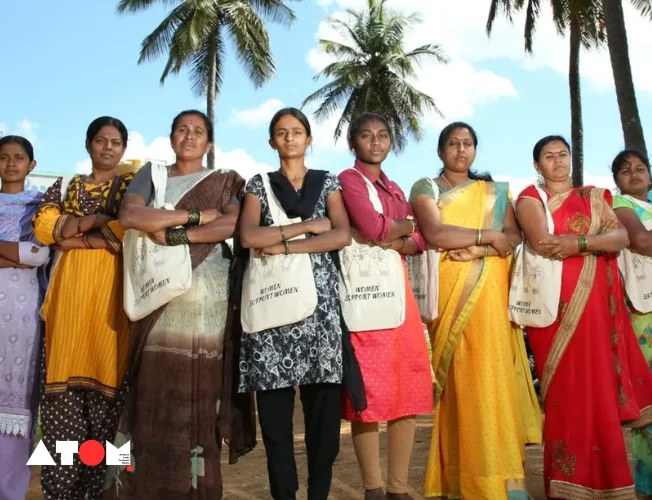In Bharat, where more than 65% of the population resides in rural and semi-urban areas, financial inclusion remains a significant challenge despite developments in telecommunications and internet connectivity. Local women entrepreneurs play a critical role in bridging the gap that exists between official financial institutions and rural consumers. Their understanding of social dynamics and local demands makes them ideal catalysts for delivering financial services to last-mile communities, hence fostering inclusive economic growth in Bharat.
The Potential of Local Women Entrepreneurs
In addition to being housewives, women in rural and semi-urban areas of India have the ability to be business owners and civic leaders. In contrast to 17% of women in urban regions, 33% of women living in rural areas do not have access to education, according to the National Family Health Survey. Adolescent pregnancies and high rates of maternal death underscore the difficulties these women encounter. For example, 8% of women in rural areas become pregnant between the ages of 15 and 19, which is greater than the rate of pregnant women in urban areas; 16.3% of women marry between the ages of 18 and 19.
The Role of Financial Literacy and Inclusion
Financial literacy and access to services are crucial for empowering these women and their communities. Many rural consumers struggle with limited financial literacy, unsuitable products, complicated documentation processes, and restricted formal credit options. Additionally, fostering a savings habit among these populations is vital for financial stability. Local women entrepreneurs, acting as banking or business correspondents, can significantly enhance the trust of households, allowing them access to financial services and fostering economic empowerment and self-reliance.
Training and Empowering Women as Business Correspondents
Training women to become business correspondents involves equipping them with the necessary skills and basic infrastructure to offer a range of financial services—from opening bank accounts to paying utility bills and offering insurance. This not only empowers the women themselves but also builds a network of trust within the community. Women are often more trusted than external agents, making them ideal intermediaries for financial inclusion.
The Transformative Impact
Encouraging local women entrepreneurs has an impact that goes beyond just monetary transactions. It helps women feel more independent and powerful, which can result in more significant social and economic changes. As these women develop their self-assurance and abilities, they encourage others in their communities to go for career opportunities, which has a knock-on impact of empowerment and development.
Addressing Financial Literacy
Moreover, involving women in financial and digital service delivery addresses the issue of low financial literacy. Women business correspondents can educate their peers about financial products and other digital service offerings, demystifying banking processes and making financial literacy more widespread. This grassroots approach ensures that financial education is relatable and practical, leading to better financial decision-making among rural households.
Promoting Gender Equality and Economic Development
With India ranking 165th in female labor force participation, and women performing 3.26 billion hours of unpaid work daily, empowering women through such initiatives can significantly improve their economic prospects. Focusing on creating an inclusive financial ecosystem by harnessing the potential of local women entrepreneurs is essential. By supporting and training these women, the reach of financial services can extend to the most remote areas, ensuring that no one is left behind. This approach not only boosts financial inclusion but also promotes gender equality and economic development
Empowering local women entrepreneurs and expanding financial access for Bharat’s households are crucial steps toward fostering a sense of empowerment and self-reliance. By integrating women into the financial ecosystem as business correspondents, we can build a more inclusive and resilient financial system that benefits everyone. This strategy not only addresses the immediate needs of rural and semi-urban communities but also paves the way for sustainable development and prosperity across Bharat.
Local women entrepreneurs are uniquely positioned to transform Bharat’s financial landscape. Their involvement ensures that financial products are tailored to meet the needs of rural households, making these services more accessible and understandable. By empowering these women, we can drive inclusive economic development, promote gender equality, and create a sustainable future for all.
Read more: Marketing News, Advertising News, PR and Finance News, Digital News





